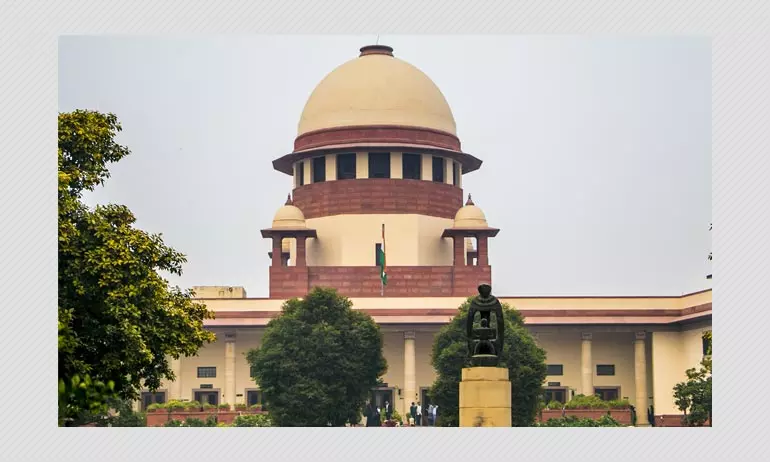
The Supreme Court upheld the stringent provisions of the Prevention of Money Laundering Act (PMLA), 2002 that outline the Enforcement Directorate's power of arrest, attachment of properties, search and seizure.
The three-judge bench led by Justice AM Khanwilkar upheld the constitutional validity of Sections 3 (definition of money laundering), 5 (attachment of property), 8(4) [possession of attached property), 17 (search and seizure), 18 (search of persons), 19 (powers of arrest), 24 (reverse burden of proof on the accused), 44 (offences triable by a special court), 45 (offences being cognizable and non-bailable).
Supreme Court pronounced its verdict on a batch of 241 pleas that challenged the validity of the amended law. Even as the three-judge bench upheld the various provisions of the amended act, a seven-judge bench will consider the question of whether the 2018 amendments to the PMLA could have been brought through the Finance Act.
In November 2019, the constitutional validity of the Finance Act 2017 being passed as a Money Bill, more specifically the Speaker's decision to certify a bill as a money bill was referred to a larger bench.
Also Read: Supreme Court 4:1 Majority Dismisses 2018 Aadhar Verdict Review Plea
BOOM recaps the key observations made by the court. A copy of this judgment is yet to be uploaded.
Key Observations of the Supreme Court
Supreme Court clarified that ED officials are not "police officials" and hence procedures under the Code of Criminal Procedure, 1976 do not apply. This means that procedures for seizure, arrest, summons, judicial oversight, and registration of complaints are not applicable to ED proceedings. Statements made by the accused can also be used against them. PMLA contains sufficient safeguards with respect to arrest and attachment of properties, the court said.
It further clarified that supplying the Enforcement Case Information Report (ECIR) under PMLA proceedings is not mandatory since it is an internal document and the same cannot be equated to a First Information Report (FIR).
"Supply of ECIR to accused is not mandatory and only disclosure of reasons during an arrest is enough. Even the ED manual is not to be published since it is an internal document," the bench, also comprising Justices Dinesh Maheshwari and CT Ravikumar said. However, when the accused is before a Special Court, they can ask for records to see if continued imprisonment is necessary, the bench added.
Supreme Court clarified that ED officials are not "police officials" and hence procedures under the Code of Criminal Procedure, 1976 do not apply. This means that procedures for seizure, arrest, summons, judicial oversight, and registration of complaint are not applicable to ED proceedings. Statements made by the accused can also be used against them. PMLA contains sufficient safeguards with respect to arrest and attachment of properties, the court said.
Mere possession or use of proceeds of crime without projecting it as untainted is money laundering.
It was the legislature's prerogative to include a wide list of predicate offences under PMLA which covers a variety of crimes ranging from provisions of the IPC to copyright violations.
The court said that the reverse burden of proof on the accused under the PMLA was reasonable.
Supreme Court observed that arguments about the proportionality of punishment under PMLA act with respect to scheduled offences were wholly "unfounded".
The top court said that the "twin conditions" of bail (hearing the prosecution and requiring the accused to prove innocence) under PMLA were reasonable after observing that the parliament is competent to amend Section 45 in its present avatar since it cured the defects pointed out by the Supreme Court in its Nikesh Tharachand Shah judgement which had struck down the earlier version of the twin conditions.











